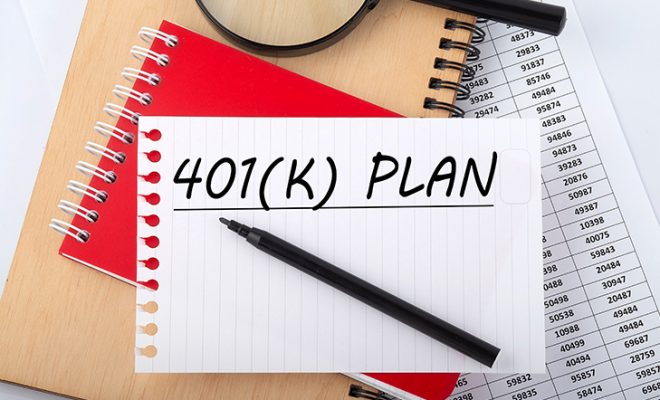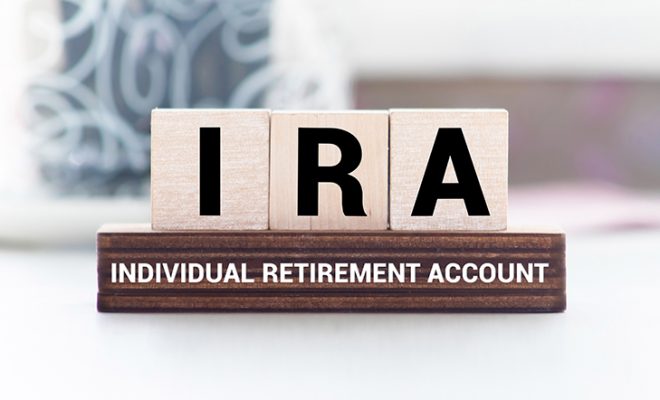Should You Pause Your 401(k) Contributions During A Recession?

Consistency has long been hailed as a guiding principle in financial planning. Yet, you will find that there are moments when the question arises if you should momentarily halt your investments. Pausing the contributions to your 401(k) during a recession is a valid consideration. However, the answer is not a simple one. It requires a nuanced understanding of the pros and cons and the potential long-term repercussions of such a decision. While the importance of consistency and discipline is undeniable, there are instances where a strategic pause might be a well-considered move.
You can consult with a financial advisor who can help you make a well-informed decision on how to protect your 401(k) during a recession. This article will also discuss the pros and cons of stopping your contributions. These strategies can help you align your goals with market conditions without impacting your long-term objectives.
Advantages of pausing your 401(k) during a recession
1. You can free up more cash for present needs
Even in a recession, your essential needs do not take a backseat. You will still incur similar expenses. Pausing or reducing 401(k) contributions can provide you with a substantial influx of cash that can be directed towards pressing needs. This might include essentials like rent or mortgage payments, groceries, utilities, and medical bills. With more disposable income at hand, you have the freedom to reallocate your funds according to your current priorities. This can potentially ease the strain on your monthly budget.
2. It can help you tackle emergencies
An emergency can strike at any time. You could lose your job, face a medical emergency, your house may need repairs, or a loved one may require your financial assistance. In times of crisis or unforeseen emergencies, having readily accessible funds is paramount. By temporarily pausing 401(k) contributions, you can create a more immediate safety net to navigate these unexpected challenges. Knowing that you have a buffer to address emergencies can significantly reduce anxiety and stress associated with unexpected financial burdens.
3. It can lower your dependence on debt
A financial challenge can push you to rely on debt. While debt can provide temporary financial relief, it can also burden you with high-interest rates later. This can put you in a financial spiral and force you to neglect your long-term financial needs for a longer time. It can also affect your credit score and make it harder to procure a loan later. Pausing contributions can prevent you from resorting to credit cards or loans to meet immediate needs. This curbs the accumulation of high-interest debt. Avoiding unnecessary debt can help you maintain a healthy credit score and ensure favorable terms when you need future credit.
4. It can provide peace of mind
A Recession can be a financially and mentally draining time. The declining value of your assets can be a cause of stress and mental strain. A strategic pause in your 401(k) contributions allows you to concentrate on the present without the looming pressure of allocating a fixed portion of your income toward retirement savings. The ability to address current financial challenges and emergencies can enhance your overall sense of well-being and foster a sense of control over your circumstances.
Downsides of pausing your 401(k) contributions during a recession
While you can pause your contributions to protect your 401(k) during a recession, the decision does come with its share of cons.
1. It may negatively impact your future financial growth and retirement lifestyle
While pausing your contribution brings in temporary benefits, it can stunt your future growth. When you stop or lower your 401(k) contributions, you are essentially reducing the funds that can potentially grow over time. This could lead to a smaller retirement nest egg, affecting your financial security in the long run. Even small contributions made consistently over time can significantly impact the final amount you accumulate.
With a smaller retirement pool, you put yourself up for bigger risks in the future. This could alter your lifestyle post-retirement. You may have a smaller retirement fund to tackle inflation. You can also suffer from longevity risk and outlive your savings. Moreover, you may not have adequate savings to cover essential costs like healthcare, long-term care, and emergencies in retirement. This may force you to live frugally or depend on your children or others for money.
2. You may miss out on employer matches
Many employers offer matching contributions as part of their 401(k) plans. When you pause your contributions, not only do you miss out on potential growth but also on these employer matches. An employer match is essentially free money on the table that is added to your account in proportion to your contribution. Employer matches can instantly increase the amount of money going into your account. Over time, these matches can add substantial value to your overall portfolio. Leaving this can slow down your retirement preparation considerably.
Not all employers offer a match. But if your employer does offer one, you must consider the impact of losing it before pausing your contributions.
3. It may slow down the compounding growth of your investments
The magic of compound interest lies in the fact that your money earns returns not only on the initial investment but also on the accumulated earnings. By pausing contributions, you end up interrupting this compounding process, which could lead to a slower growth rate for your investments. It is essential to understand that compounding growth is most effective over more extended periods. This means even tiny breaks in contributions can notably impact the final value of your retirement savings.
SPONSORED WISERADVISOR
How do you protect your retirement savings during a recession?
Understanding the importance of not being bothered by market fluctuations can make all the difference in retirement planning. While it is natural to feel concerned about market fluctuations, it is crucial to keep a long-term perspective. Historically, the stock market has shown an upward trend over time despite occasional downturns. The market’s inherent volatility should not deter you from maintaining a consistent investment strategy. Attempting to time the market or making impulsive decisions based on short-term movements can negatively affect your investment outcomes.
Viewing market fluctuations as part of the broader market cycle is important. This can help you remain steadfast in your financial decisions and minimize the emotional impact of temporary downturns. Reacting impulsively to a bear market by withdrawing investments can have profound and lasting consequences. Such reactionary moves often lock in losses and erode the potential for future gains. The allure of safeguarding your investments by withdrawing during a downturn removes the opportunity for recovery once the market rebounds.
Bear markets can be intimidating, but they also provide you with financial opportunities. Stocks and other investment vehicles may be available at lower prices when the market is experiencing a downturn. This can present a chance to buy quality assets at a lower price and potentially enjoy substantial gains when the market rebounds. Time can be your most valuable asset, irrespective of the market conditions. The compounding effect of investments over time can overshadow the negative impact of market volatility.
It is also essential to establish an emergency fund. Creating a financial buffer in the form of an emergency fund ensures you do not need to compromise your 401(k) contributions to meet your current needs during a recession. It ensures you have readily accessible funds to cover all your essential expenses without tapping into your retirement savings or altering your investment strategy.
5 steps to take to prepare your 401(k) before a recession
While uncertainty is inherent in the world of investing, a well-informed and strategic approach can make all the difference. If you are wondering where to put your retirement money in a recession or how to manage your 401(k) before an impending market downturn, here are some options you can consider:
1. Diversify your portfolio to shield your investments from volatility
Diversification is the art of not putting all your eggs in one basket. It refers to spreading your investment capital across different asset classes, industries, market capitalizations, and geographic regions. Doing so creates a potent shield against market volatility arising out of a recession. This helps effectively minimize the impact of a downturn on any single investment and mitigates losses.
You can start by learning about different asset classes, such as stocks, bonds, cash equivalents, and more. Evaluate the investment options available within your 401(k) plan. These may include mutual funds, index funds, Exchange-Traded Funds (ETFs), and target-date funds. Determine your risk tolerance based on factors like age, financial goals, and comfort level with market fluctuations, and select options that align with your needs. For instance, you might distribute funds between domestic and international stocks, bonds, etc. If you are uncertain about how to diversify your 401(k), consider consulting a financial advisor. They can provide tailored guidance based on your specific circumstances and goals.
2. Rebalance your portfolio
As market dynamics shift, your investment portfolio may move away from its original allocation. Portfolio rebalancing is the process of realigning your investments to their initial proportions. Portfolio rebalancing ensures that you are not overexposed to some asset classes that might be more vulnerable during a recession. This strategy can play a pivotal role in managing risk and optimizing returns.
3. Resist the urge to sell
As stock prices drop, the temptation to sell off your stocks can be overpowering. The fear of further losses can lead to hasty decisions. However, history has shown that market downturns are often followed by recoveries. Selling off your stocks during a recession may lock in losses and rob you of potential gains when the market eventually rebounds. Remember, you cannot suffer a loss on paper. Your losses only materialize when you sell your investments for a lower cost. Until then, your losses are more or less virtual, and there is always the chance that they can recoup.
4. Increase your 401(k) contributions
As explained above, stock prices drop during a recession. But this presents the opportunity to buy new stocks at a discount. If you increase your contributions during a market slump, you may capitalize on reduced stock prices. As the market recovers, the stocks you acquire at this discounted rate have the potential to yield significant returns in the long run. This strategy helps you lock in greater profits over the long run. Moreover, if you are 50 years of age or above, you can make an additional contribution of $7,500 to your 401k account to boost your retirement savings.
5. Embrace a long-term mindset
It is essential to maintain a long-term mindset amidst market turbulence. Consistency, discipline, and patience can be far more rewarding in investing than most other hacks. It is important to understand that time in the market is more important than timing the market. Moreover, it is practically impossible to time the market. Timing the market requires technical knowledge of different investment principles, time, and constant vigilance. This can be hard for most investors.
If you refer to data released by the International Monetary Fund (IMF), you will find that the typical duration of a recession spans approximately 11 months only. Therefore, you must remind yourself to resist the urge to react impulsively to short-term fluctuations and ride out volatility by being patient and steadfast.
To conclude
While pausing 401(k) contributions in times of financial strain is understandable, it is crucial to consider the drawbacks. Reduced contributions lead to diminished growth potential, missed employer matches, and slower compounding. All of these ultimately impact your retirement. Therefore, resilience against market fluctuations is crucial. You must balance your immediate needs with a forward-looking approach to ensure peace of mind and better financial security for life. Make sure to explore alternative strategies before pausing your contribution. If you find it necessary to stop your investments, do so temporarily after weighing the pros and cons and the impact on your long-term goals.
Use the free advisor match service to elevate your financial journey with personalized guidance from professionals who understand the nuances of retirement planning. Our matching tool can help connect you with 1 to 3 advisors most suited to meet your financial requirements by answering a few questions about your financial needs.











